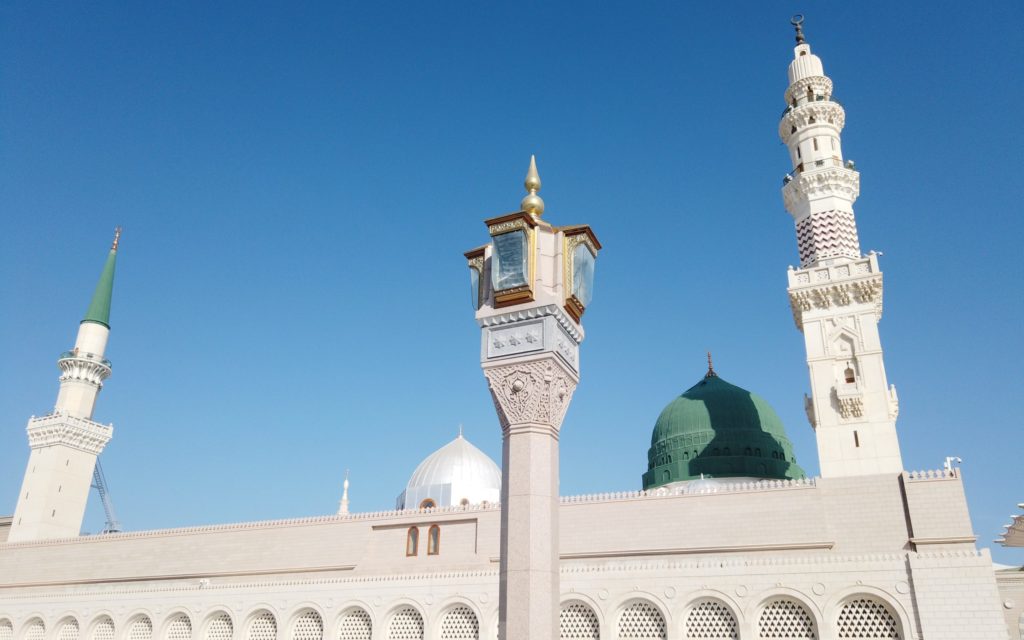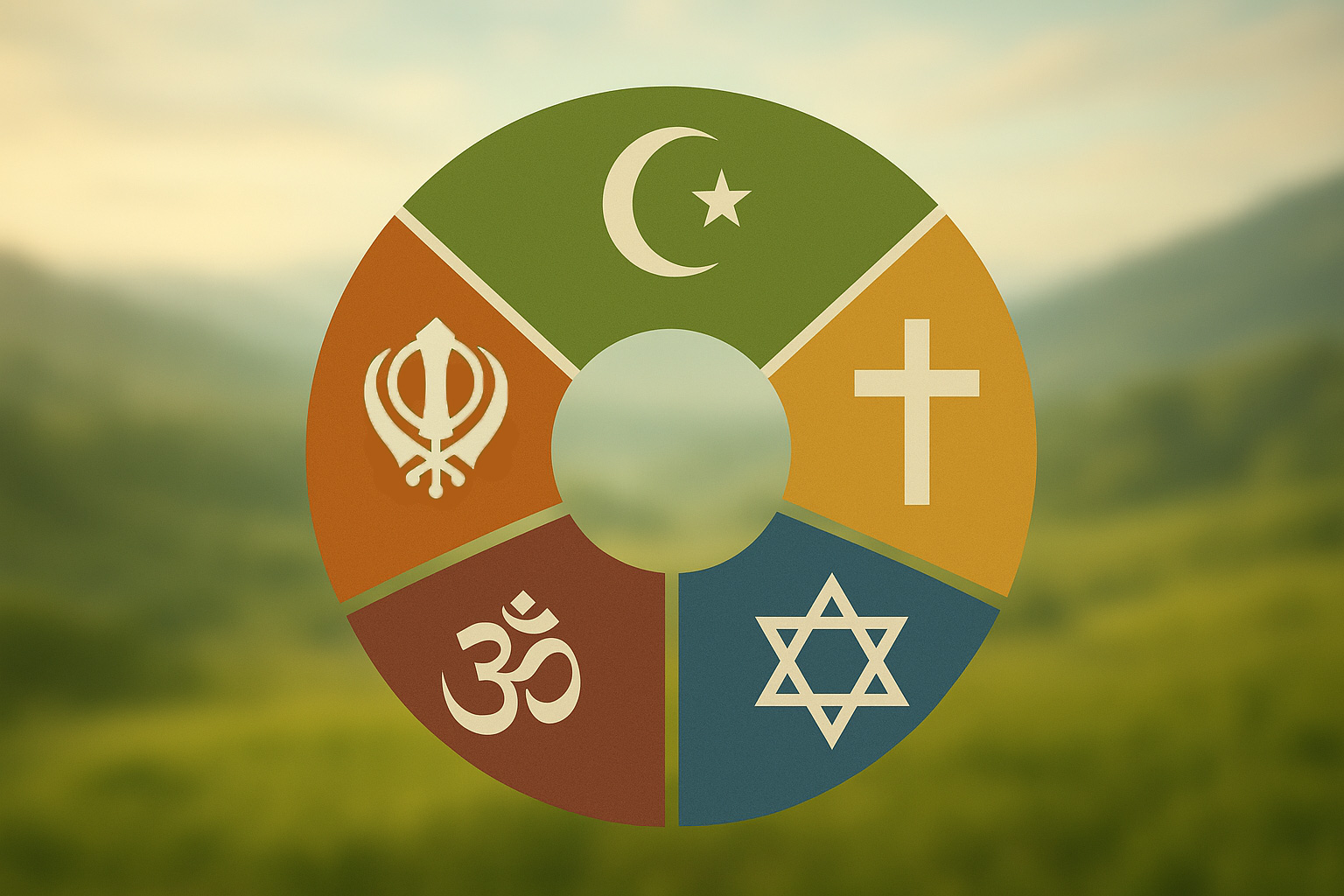Islam has been largely misunderstood as an ideology endorsing terrorism. While the opponents of Islam try to assert this narrative, nothing can be further from the truth.
HUSAM AHMED
SEPTEMBER 12, 2020
The way to Islamophobia has become surprisingly short. In today’s world, which has fathered an unprecedented hatred towards Islam, it does not take long for even a fair-minded person to develop an extreme dislike for Islam and its ideologies.
It has become normal, rather meritorious, nowadays, to vilify and unjustly insult Islam and its founder. The more hatred one harbours against Islam, the more he is hailed as a hero, as the unfair criticism of Islam has become the yardstick of measuring morality.
Understanding Islam in the post 9/11 world
After the tragic event of 9/11, the world has seen a rise in Islamophobia unparalleled in history. In the circumstances that created, even a person sincerely wanting to learn about Islam will find himself trapped in the maze of myths and misunderstandings with no clue of the right way to reach the truth.
The skillful use of deceptive tactics by the anti-Islamic groups coupled with the terrorist acts of some so-called Muslim radicals has led many people to have a perception of Islam as being an ideology endorsing terrorism.
However, this conception of Islam is completely erroneous and has no basis whatsoever on factual and logical grounds.
Islam denounces terrorism
Although the perpetrators of terrorism are not limited to one community or religion, the fact cannot be ignored that in recent years, an unignorable share of such atrocities has been coming from people who claim to follow Islam.
But the fact is, as the attribution of their actions to Islam is devoid of proof, so is their claim to be driven by religious motives devoid of truth. It is very much evident that these extremists are motivated by vested and political interests, and not by Islam.
Didier Francois, the French journalist who was released by ISIS in 2014 after 10-months of captivity openly said that his captors cared little for religion. He said:
It was more hammering what they were believing than teaching us about the Quran. Because it has nothing to do with the Quran.[1]
It is not just that their actions find no justification in the Holy Quran but also attract its reproval. Almost all of the human ideologies stand against extremism, though the emphasis Islam places on this matter can hardly be witnessed in other ideologies. The Holy Quran goes so far as to equate the killing of one innocent man to the killing of the whole of humanity as it declares,
We prescribed for the children of Israel that whosoever killed a person — unless it be for killing a person or for creating disorder in the land — it shall be as if he had killed all mankind; and whoso gave life to one, it shall be as if he had given life to all mankind.[2]
Hence, it is a slap on the face of the truth to associate Islam with terrorism. Extremism is a concept that is completely antithetical to the basic principles of Islam. Even a superficial study of its history and ideologies will be sufficient to assert this fact.
“Force can bend heads, but not minds”
Extremists and Islamophobes are equally enthusiastic, but at the same time wrong to claim that Islam permits converting people to it at the point of the sword. Before turning to the Holy Quran, which will very well prove this assertion to be ridiculously wrong, a simple analysis of the history of Islam disproves this notion on the grounds of logic.
Even the staunchest of Islam’s enemies will agree to the fact that Islam was weak during its initial years, in terms of worldly power. For over a decade, Muslims were subject to the harshest persecutions at the hands of the chieftains of Mecca. There is no disagreement that people were attracted to Islam for its beautiful teachings, or so is to be inferred given that people continuously entered the fold of Islam despite fierce opposition.
This completely debunks the myth of Islam being spread by the use of force. If, initially, Islam did spread through peaceful means, what need arose to change that method to force? And if it is supposed that Islam had never spread peacefully and had at no stage attracted people through its teachings, how did it gain power at all?
Hence, nothing could be further from the truth than saying that force played any role in the propagation of Islam. The idea is further disproved by the Holy Quran which says:
And if thy Lord had enforced His will, surely, all who are on the earth would have believed together. Wilt thou, then, force men to become believers?[3]
Thus, Islam advocates complete freedom in the matter of religion. Any form of coercion in the name of faith is categorically rejected. This principle is further expressed in the most exquisite form in the following verse of the Holy Quran:
There should be no compulsion in religion. Surely, right has become distinct from wrong.[4]
This bold proclamation that ‘right is distinct from wrong’ is worth special attention. Any implication of force in propagating an ideology, according to this, will be an act disproving its own truthfulness. The boundaries of propagation end at manifesting the truth, and not a step further.
Why were wars waged in Islam?
Here, the question may arise as to why the Holy Prophetsa and companions waged wars against the disbelievers. The straight answer to this is that not a single war fought in the early history of Islam was to spread faith, gain supremacy, or eliminate infidelity. Instead, each of those wars was in defence of lives and properties, and to ensure freedom of expression.
After thirteen years of continuous persecution, Muslims were forced to leave their homeland and migrate to Medina. It was when the disbelievers pursued Muslims there, determined to annihilate them, the permission to fight in defence was granted. The Quranic verse revealed in this regard grants much clarity on the topic. It says:
Permission to fight is given to those against whom war is made, because they have been wronged, and Allah indeed has power to help them. Those who have been driven out from their homes unjustly only because they said, ‘Our Lord is Allah’. And if Allah did not repel some men by means of others, there would surely have been pulled down cloisters and churches and synagogues and mosques, wherein the name of Allah is oft commemorated. And Allah will surely help one who helps Him. Allah is indeed Powerful, Mighty.[5]
This verse makes it clear that Muslims were not the initiators of war, but were forced into the battlefields for their lives. However, the objective of these wars was not limited to protecting the lives and properties of just Muslims, rather the verse clearly demands the protection of cloisters, churches, mosques, and other places of worship.
Hence the underlying object behind this permission was to establish freedom of religion. This has been more clearly mentioned in another verse of the Holy Quran which says,
And fight them until there is no persecution, and religion is freely professed for God.[6]
Unfortunately, these very verses which advocate for the freedom of religion are often quoted to justify religious persecution and forced conversions.
Jihad- At the mercy of misunderstanding
Jihad is probably the most misunderstood, yet the most widely referenced of all Islamic terms. In contemporary discourse, this word has acquired a very ugly connotation, creating an extremely unpleasant feeling in the person hearing it.
However, this erroneous perception of the word Jihad, which has become synonymous with war, can only serve as a classic example of the extent to which a term can be misunderstood.
The word Jihad literally means to strive or make efforts in a cause. To give a simple example, a student striving hard for academic excellence is commonly described in Arabic as ‘Mujtahid’- a word that shares the same root with ‘Jihad’- meaning hardworking.
Another similar example from Islamic terminology is the word ‘Ijtihad’. The term, which again shares the same root with Jihad, refers to independent reasoning in theoretical and legal matters of Islam.
The meaning and application of the word Jihad with which it appears in the Holy Quran will require a separate treatise, however, suffice it to say that Jihad is the spiritual struggle a person performs against the evil thoughts that arise in his mind.
Islam is a religion of peace
A mere denunciation of violence will not necessarily earn an ideology the status of being peaceful unless it instills in a man’s heart feelings of sincere love and affection for fellow humans.
This, that is to love mankind and give them their rights, is what Islam stands for, and any shortcoming in which may very well lose a person his eligibility to be called a true believer.
Human life being a composition of various aspects, this piece would not be enough to cover every Islamic teaching on peace, however, I intend to present the definition of a true believer given by the Holy Prophetsa which, though less in words, covers a huge area of human relations and is truly a guarantor of peace. He says:
None of you will become a true believer unless he loves for his brother what he loves for himself.[7]
The requisites of a fair society cannot be explained more simply, yet precisely than this. In today’s world, where a man’s pursuit of peace is what demolishes the peace of another man, this selfless attitude, undoubtedly, is the way to a peaceful society.
References
[1] https://edition.cnn.com/2015/02/03/intl_world/amanpour-didier-francois/index.html
[2] Holy Quran 5: 33
[3] Holy Quran 10: 100
[4] Holy Quran 2: 257
[5] Holy Quran 22: 40-41
[6] Holy Quran 2: 194
[7] Sahih al-Bukhari, Book of Belief













1 Comment
Muhammad Sadique Dawood · September 12, 2020 at 1:46 pm
A very cogent and comprehensive article on the aspect of Islam which, though inherent in it’s name, is sadly ignored by the world.